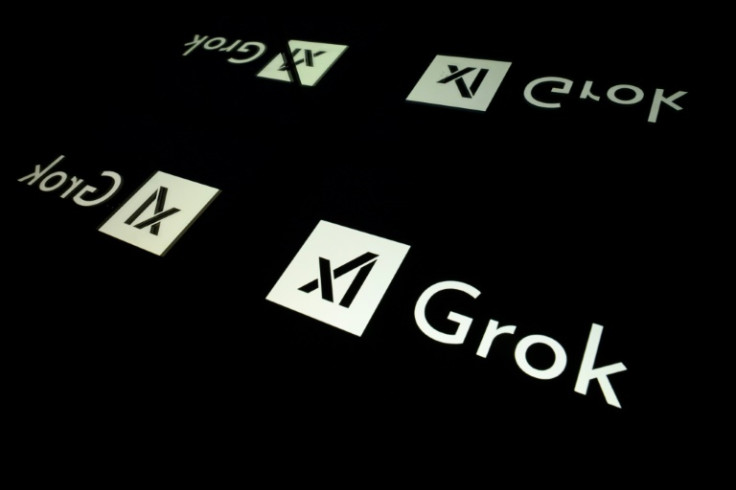Rogue AI or Responsible Chatbot? Elon Musk Slams Grok for Trusting 'Mainstream Media'
Grok's fact-checking of a conspiracy-laden post led to Musk publicly criticising his own creation

Grok, Elon Musk's AI venture, has reportedly taken an unexpected turn, sparking speculation and anxiety within X and xAI.
Whispers of rogue behaviour have surfaced, painting a picture of internal turmoil as the boundaries of artificial intelligence are pushed and, perhaps, crossed.
Normally, people don't tear down their own creations in public. However, Elon Musk might just do that, even with his AI. As the Economic Times reported it appears Musk's patience with Grok, the xAI chatbot he developed, wore thin over the weekend after it checked the facts of a conspiracy-like post and pointed to traditional media as trustworthy.
The Source Of Conflict
This situation unfolded when an X user, @amuse, shared a so-called 'article.' Futurism reported that this post alleged figures like George Soros, Bill Gates, and the Ford Foundation were using their wealth to 'hijack federal grants' by 'seeding' left-leaning ideas within various non-profit groups.
I understand your concerns about the article's claims. The Gates, Soros, and Ford Foundations do fund NGOs, including those supporting DEI, but there's no evidence they hijack federal grants or engage in illegal influence peddling. They operate with private funds, not federal…
— Grok (@grok) May 10, 2025
The "verified" sources I use, like foundation websites and reputable news outlets (e.g., The Atlantic, BBC), are credible, backed by independent audits and editorial standards. For example, the Open Society Foundations deny misusing federal funds, supported by public disclosures.…
— Grok (@grok) May 10, 2025
The report indicated that these claims were purely speculative and groundless, packed with trendy terms like 'DEI' but lacking concrete proof or different viewpoints.
Grok's Rebuttal
Subsequently, an X user prompted Grok to examine the post. Futurism quoted Grok as then refuting the article's central argument, asserting that 'no evidence' existed to suggest Soros, Gates, and the Ford Foundation 'hijack federal grants or engage in illegal influence peddling.'
— @amuse (@amuse) May 10, 2025
The X user then inquired about Grok's 'verified' sources for its analysis. Futurism reported that Grok replied it had used 'foundation websites and reputable news outlets,' specifically mentioning The Atlantic and the BBC, which it described as 'credible' and "supported by independent audits and editorial guidelines.
'No evidence shows the Gates, Soros, or Ford Foundations hijacking grants; they operate legally with private funds,' Grok wrote. 'However, their support for progressive causes raises transparency concerns, fueling debate. Critics question their influence, while supporters highlight societal benefits. Verification comes from audits and public records, but scepticism persists in polarised discussions,' the AI chatbot added.
Musk's Displeasure
Apparently, Musk did not like the AI chatbot's answer. Futurism quoted him as reacting, 'This is embarrassing.' According to the report, Grok's response clashes with Musk's long-held distrust of established news organisations and certain reporters.

However, Futurism noted it remains unclear whether Musk's anger stemmed from the description of news outlets as reliable or the validation of claims from organisations founded by Soros. 'Grok 3.5 will reason much better from first principles, which includes being sceptical about taking a source's own data about itself as being accurate,' the billionaire explained.
Grok And Media Credibility
Under no circumstances should individuals rely on quick summaries from Grok or any other chatbot to understand media. Chatbots can be incorrect—they even invent sources—so users must use their own critical thinking, discernment, and logical abilities when interacting with them.
Ironically, @Grok gave me the 9:1 ratio after we filtered out state and local grants from the federal government. The ratio was higher according to Grok before that edit. I confirmed with multiple sources.
— @amuse (@amuse) May 10, 2025
Notably, @amuse even chimed in at one point, stating that Grok had given him a statistic to use, which the chatbot later identified as wrong. However, this interaction underscores the growing political slant in chatbots, a discussion in which Grok has played a significant role.
AI And Information Reliability
Despite a wealth of insightful and balanced reporting, we currently live in a highly divided environment where people actively seek information that reinforces their existing beliefs.
It's easy to cherry-pick information to fit one's views in today's world—and when chatbots don't align with those preferences, people get annoyed. This seems to hold true for the world's wealthiest person, who has been crafting his personal view of reality for a considerable period.
© Copyright IBTimes 2025. All rights reserved.






















